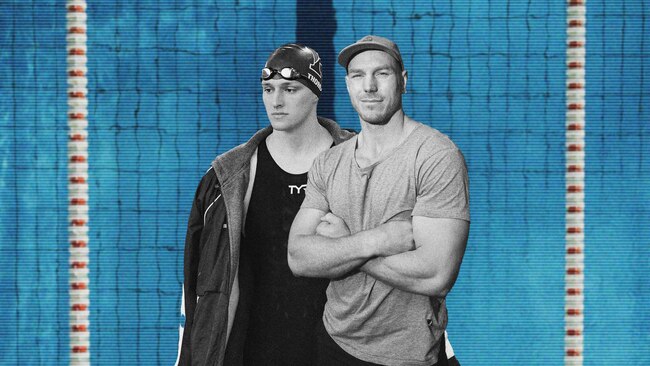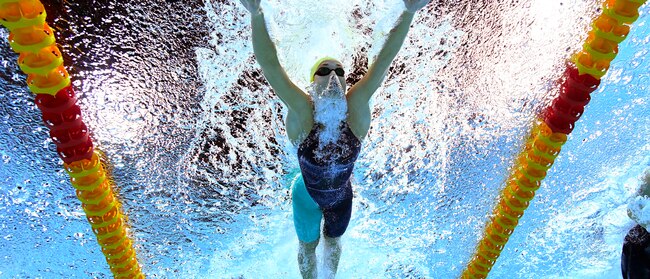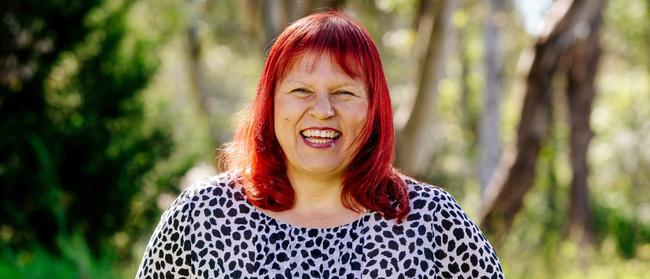David Pocock: Politicisation of trans sport 'incredibly disappointing'
"That sort of behaviour has the potential to cause tremendous harm."

"That sort of behaviour has the potential to cause tremendous harm."
New ACT Senator and former Wallabies captain David Pocock says gender should never be used to incite culture wars for political gain after the international swimming body made a landmark ruling to prevent transgender people from competing in women's only races.
As rugby league moved to follow swimming's lead by banning transgender athletes from competing at this weekend's Test matches, Pocock told The Oz sport needed to have serious conversations about ensuring competition is fair but the focus should be on supporting all athletes as sporting bodies navigate these challenges.
He also took aim at the politicisation of transgender people in sport during the 2022 federal election campaign when the Liberal candidate for Warringah - Katharine Deves - spoke out against transgender women competing in women’s sport after having previously made derogatory remarks about transgender people.
"It was incredibly disappointing to see this issue wielded as a political weapon during the election campaign," Pocock said. "That sort of behaviour has the potential to cause tremendous harm."
"Going forward we need to do better to be supportive and more inclusive, and never use gender – in sport or any other domain - to incite culture wars for political gain."
Pocock said during his professional sporting career he had heard many stories about how sport could both divide and unite, having the power to "harm and exclude" and "welcome and support."
"While sport has some serious conversations to have about how to do this well and ensure competition is fair, our focus should be on supporting all athletes as we navigate through them," he said.
Warringah MP Zali Steggall - a former Olympic skier - said it wasn't an issue that needed intervention from federal politicians as the Sex Discrimination Act allowed sports to "apply flexible consideration to issues" when it comes to fair and safe inclusion of people in sport.
She also said it was an issue that shouldn't be weaponised for political means.
"It's not an issue that needs intervention from Federal politicians, and the sporting codes made that call loud and clear during the election, when Scott Morrison's captains pick’s divisive remarks were discovered," she said. "We want to ensure that this issue is not weaponised."
The international ban on transgender swimmers from women-only races has been hailed by some Australian Olympians as the “best decision” and a "victory for fairness" in a controversial move that could spark other Olympic sports to follow suit.
But others have branded the move as discriminatory and harmful, warning the introduction of an open category could lead to gender diverse athletes being further marginalised.
One of the international activists responsible for the push, triple US Olympian swimmer Nancy Hogshead-Makar, called the FINA decision a "tipping point" for all other sporting bodies grappling with whether to ban transgender people from women-only events.
“Swimming is one of the first major sports to push back against the trans rights advocates who are trying to argue against biology,” Hogshead-Makar said.
“I think in a perfect world, if it were fair, and biology could make it fair, then everybody would be in favour of inclusion.
“This is not about being anti-trans or having some ill will towards transgender people. It is about fairness for half of the world’s population."
Australian Olympian and triple gold-medallist Emily Seebohm was “happy that a decision has been made” and said she felt FINA had struck the right balance between fairness and inclusion.
“I think this is the best decision that could have come,” Seebohm told The Australian on Monday. “I think it is as fair as it can be. Our sport is welcoming to all athletes wanting to be involved and I think that is why this open category will be very good."
“People should have every right to participate. I am hopeful one day this won’t be such a big issue.”
Seebohm, who won medals across four Olympics, said she wanted transgender swimmers to “feel like they have this spot to shine in our sport".
But support for the decision has been far from resounding.

Olympic medallist Madeline Groves condemned the move that will see transgender women banned from female events once they reach puberty (or the age of 12) unless they have already transitioned.
Groves, 27, has been one of swimming’s most outspoken critics of any moves to segregate transgender athletes from competition and the decision by FINA to become the first sport in the world to take the strong stance has angered the 2016 Rio butterfly silver medallist.
“I will say I think this decision from FINA is deeply shameful," she said.
“The decision is unscientific and goes against the IOC’s framework of fairness, inclusion and non-discrimination on the basis of gender identity and sex variations," she told News Corp via text message on Monday.
“My hope that a young gender-diverse child can walk into a swimming club and feel the same level of acceptance†so you ban them from competing with their peers? You’re okay with ostracising an already marginalised group? Real accepting https://t.co/Z8zZYeLE0E
— Maddie Groves (@MaddieGroves_) June 20, 2022
Sports LGBTQI+ advocacy group Athlete Ally also slammed the news.
"FINA’s new eligibility criteria for transgender athletes and athletes with intersex variations is discriminatory, harmful, unscientific, and not in line with the 2021 IOC principles. If we truly want to protect women’s sports, we must include all women," they tweeted.
The decision was reached at a meeting in Budapest on Monday where 71% of FINA (Fédération Internationale de natation) members voted in support of this policy.
Transgender rugby league player Caroline Layt, 56, said that while she agreed there should be guidelines in elite competition, FINA’s decision was discriminatory.

“They are pretty much trying to take trans women out of sport,” she said.
Layt, who was the first transgender player to make the NSW State of Origin women’s team in 2007, said a more nuanced approach to debate was required.
"After puberty men are generally stronger than women, but we need a more nuanced approach to debate on this," she told The Australian. "People who have transitioned lose endurance and muscle mass, and after 10 to 15 years they would not even be competitive."
Swimming is not alone to have hardened its rules around trans women athletes. In just the past week cycling’s ruling body, the UCI, moved to strengthen its eligibility criteria for the female category, by implementing a tougher restriction on testosterone levels for trans women.
Triple Olympic gold medallist Kaylee McKeown praised FINA’s call, while Emma McKeown said she as "all for a fair sport."
“And if that’s what the professionals thinks is fair then I’m happy to stick with what they’re doing. It’s an opinion. I believe that FINA’s done the right thing,” she told News Corp.
The historic ruling comes into play as early as next week.
It means high-profile transgender athlete American Lia Thomas will be unable to compete in women's races at the 2024 Paris Olympics and beyond.
Yet, the rules only apply at FINA sanctioned events, including the Olympics and world championships, and countries will still need to come up with their own regulations for local competitions.
Before the vote, Australian swimmer Emily Seebohm urged her peers to accept the vote either way.
“[Following the decision] we can actually move our sport on to bigger and better things of being an inclusive sport and having everyone involved and we will have a better understanding of how that works.”
Australian Olympic flagbearer Cate Campbell addressed FINA ahead of the ban, telling the congress that inclusion and fairness were in conflict in transgender, gender diverse and non-binary elite sport.
"It pains me, that this part of my role, may injure, infuriate and potentially alienate people from an already marginalised trans community," Campbell told the Congress.
"That men and women are physiologically different cannot be disputed. We are only now beginning to explore and understand the origins of these physiological differences and the lasting effects of exposure to differing hormones," she went on to say.
In a statement, FINA President Husain Al-Musallam said: “We have to protect the rights of our athletes to compete, but we also have to protect competitive fairness at our events, especially the women’s category at FINA competitions.”


